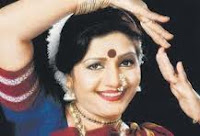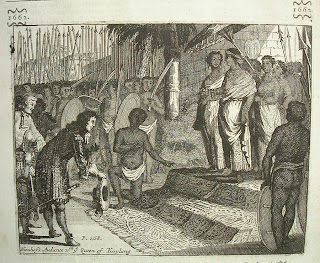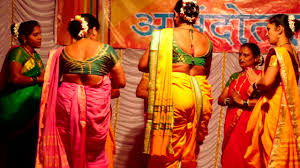Ramadan and its Significance




Ramadan and its Significance
The month of Ramadan or Ramazan Arabic: Ramaḍān, Persian: Ramazan Turkish: Ramazan, the ninth month of the Islamic calendar, is a holy month for
Muslims all over the world and the coming of this month is greeted with ecstasy and expectation. The word Ramadan is derived from Arabic word Ramida, meaning scorching heat and dryness especially the ground. This joy can be witnessed in all the Muslim populated countries including India where the sighting of the moon is followed by elaborate decoration of streets, shops and mosques with colourful series of lights. In Egypt, lanterns are known to be a symbol of Ramadan. They are hung across the cities of Egypt, part of an 800 year old tradition, the origin of which is said to lie in the Fatimid era where the Caliph Al-Muizz Lideenillah was greeted by people holding lanterns to celebrate his ruling. From that time lanterns were used to light mosques and houses throughout the city.
This month is considered a gift from God-Allah, The Supreme Almighty in the form of mercy and forgiveness. During this time Muslims feel they can get in touch with their inner selves, strengthen their faith and in a certain way, come closer to God. The Lailat-ul.Qadr is considered to be one of the most important nights in this month and is much awaited. It is considered a gift to Muslims from the Almighty as they are given a chance to wash their sins and become pure. During this month Muslims refrain from eating, drinking, smoking and sex and is intended to teach Muslims about patience, spirituality, humility and submissiveness to God.
Compared to the solar calendar, the dates of Ramadan vary, moving backwards by about eleven days each year depending on the moon; thus, a person will have fasted every day of the calendar year in 34 years' time. Muslims believe Ramadan to be an auspicious month for the revelations of God to humankind, being the month in which the first verses of the Qur'an were revealed to the Islamic prophet, Muhammad. The entire month is spent fasting from dawn to dusk. The first day of the next month is spent in great celebrations and rejoicings and is observed as the ‘Festival of Breaking Fast’ or Eid ul Fitr. God instructs Muslims to fast just as those (other prophet's peoples) were instructed by God to fast before your time, for instance the practice of Lent.
Fasting as per Islam is practice for practicing self control. It is a way of experiencing what hunger is, experiencing the life of poor, sympathize the needy and also thanking God for everything.
Ramadan is the also the month for offering intense prayers. Muslims read the entire holy Quran and also listen to the lectures and discussion on Quran organized in Mosues. According to Quran , the 27th night of the month of Ramadan kown as Laila ul-qadr –Night of Power (popularly known as Jagne ki Raat), Muslims spend the whole night in reading and offering prayers to Almighty to save and safe guard humanity and human race, to bestow Health, wealth and grace on all.
Sighting of the Moon
The month of Ramadan usually starts with the sighting of the new moon which marks the beginning of the 9th month of the Islamic calendar. Traditionally, this method is being used to fix the date of Ramadan as stated in the Quran, and was followed by the Prophet Muhammad. The festival continues for a month until the first crescent of the new moon (Eid ka Chaaand) can be seen again. This actually marks the beginning of the new lunar month during which the Eid-ul-Fitr, another holy festival of the Muslims starts. However, there’s a lot of disagreement between the Muslims worldwide as to when the Ramadan should actually start. The Muslims traditionally view the Ramadan moon with their naked eye, which leads to differences in moon sighting for Ramadan between different countries in the world. To avoid such confusion, people are now interested in using astronomical calculations to fix the date of Ramadan.
Iftar:
Muslims all around the world will abstain from food and drink, through fasting, from dawn to sunset. At sunset, the family will gather the fast-breaking meal known as Iftar. The meal starts with the eating of three dates — just as Muhammad used to do. Then it's time for the Maghrib prayer, which is the fourth of the five daily prayers, after which the main meal is served. Over time, Iftar has grown into banquet festivals. This is a time of fellowship with families, friends and surrounding communities, but may also occupy larger spaces at mosques or banquet halls, where a hundred or more may gather at a time
Who should and can fast?
All Muslims above the age of twelve or passed the age of puberty should fast irrespective of gender.
Who are exempted?
1.Children below twelve years (eight years and above children are given training to fast for four hours)
2.Those who are physically and mentally challenged.
3.Senior Citizens.
4.Pregnant women and nursing mothers.
5.Menstruating women.
6.Sick and ill.
Five Pillars of Islam:
1.Reciting the two fold creed (shahada)-Profession of Faith-that there is no God but Allah –the one and only Supreme power and Muhammad is his Prophet-the Messenger of God.
2.Prayer-Salat- offering prayers at five set times a day facing Mecca.
3.Alms giving- Zakat. Voluntary and obligatory giving to poor.
4.Fasting –Saum- During the Ramadaan the holy month
5.Pilgrimage-Hajj- At least once in a life time visit to Mecca, Saudi Arabia.
Eid is a huge celebration when all the Muslims go to mosque early in the morning pray and enjoy themselves for the next two to three days. Usually parents buy new clothes and toys for their children. A well cooked dinner is provided.
The fast is futher continued for another six days (not by all) and is complete with celebration of Shawaal ki Eid known as Chooti Eid.










Comments